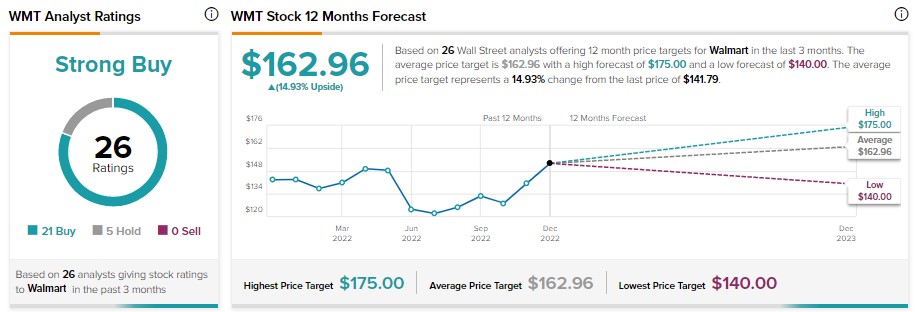The threat of recession looms large in 2023. A Wall Street Journal report highlighted that the majority of economists at top financial institutions believe that the U.S. will steer into recession in 2023. These market pundits blame the U.S. Fed’s aggressive stance toward controlling inflation through rate hikes for their gloomy outlook. A recession may or may not hit, but investors can add a safety net to their portfolios and limit the downside risk through defensive stocks like Costco (NASDAQ:COST) and Walmart (NYSE:WMT).
The defensive nature of their businesses and their value offerings help these companies perform well in an economic slowdown. However, investors should take caution, as shares of these companies are not completely immune to a recessionary situation. Let’s dig deeper.
Is Costco Doing Well Financially?
Costco has performed exceptionally well in 2022 despite macro headwinds and is financially strong. Its solid membership base and value proposition continue to drive traffic, which in turn leads to comparable sales. Its membership renewal rates remain high (they stood at 92.5% for the U.S. and Canada in Q1), which is encouraging and adds stability to its business.
Jefferies analyst Corey Tarlowe believes that COST’s higher mix of food (as a percentage of overall sales), value offerings, and membership model position it well to gain market share even amid a tough macro backdrop.
Tarlowe noted that Costco’s traffic remains healthy, with consumables driving higher sell-through. The analyst is bullish about Costco’s prospects and recommends a Buy.
Including Tarlowe, COST stock has received 18 Buy recommendations. Furthermore, it has received five Holds. Overall, COST has a Strong Buy consensus rating on TipRanks. Moreover, analysts’ average price target of $557.14 implies 22.05% upside potential.

While analysts show confidence in COST stock, it has a negative signal from hedge funds and insiders. Hedge funds sold 1.8M COST stock last quarter. During the same time, insiders sold COST stock worth $3.6M. Overall, it carries a Neutral Smart Score of six.
Is Walmart a Buy, Sell, or Hold?
Walmart is the world’s leading retailer and is known for its value pricing and wide assortments that resonate well with consumers. During the Q3 conference call, its CEO Doug McMillon highlighted that WMT sells things that people want at a value price in a difficult macro environment. This adds resiliency to Walmart’s business and positions it well to succeed in a challenging operating environment.
Credit Suisse analyst Karen Short is bullish about WMT stock and sees it as a well-positioned defensive bet in an uncertain economic environment. Short added that its value offerings and wide price gaps compared to conventional grocers would likely accelerate market share gains in a weak macro backdrop.
Including Short, Walmart stock has received 21 Buys. Also, five analysts recommended a Hold on WMT stock. It sports a Strong Buy consensus rating on TipRanks. Meanwhile, these analysts’ average price target of $162.96 implies 14.93% upside potential.

Besides for analysts, hedge funds are also bullish about WMT stock. Hedge funds bought 6.9M worth of WMT stock last quarter. However, insiders sold WMT stock worth $3.9B. Overall, WMT stock carries an Outperform Smart Score of nine on TipRanks.
Bottom Line
As the likelihood of inflation grows, these companies are well-positioned to gain market share and deliver healthy growth due to their defensive businesses. Adding these stocks to your portfolio will likely add stability and reduce downside risk.
















